Based in Nailsworth, Gloucestershire, in the far west of England, Forest Green Rovers would probably be one of many little-noticed fourth-division clubs in English soccer if it weren't for Dale Vince. The 60-year-old eco-visionary and entrepreneur saved the club from insolvency in 2010 and has since completely turned it around, and not just from a sporting perspective: in 2018, the United Nations presented Forest Green Rovers with the "Momentum for Change Award" as the world's first climate-neutral soccer club.
Forest Green Rovers. The World’s greenest soccer club.
Founded in 1889 and operating under the name Forest Green Rovers since 1898, the club’s greatest sporting achievement after a good 100 years of club history was probably being the only semi-professional club to reach both the FA Vase and FA Trophy finals in 1999. It wasn’t until the club reached the National League playoffs that it finally made the long-awaited leap into professional English soccer in the 2017/2018 season with promotion to League Two.
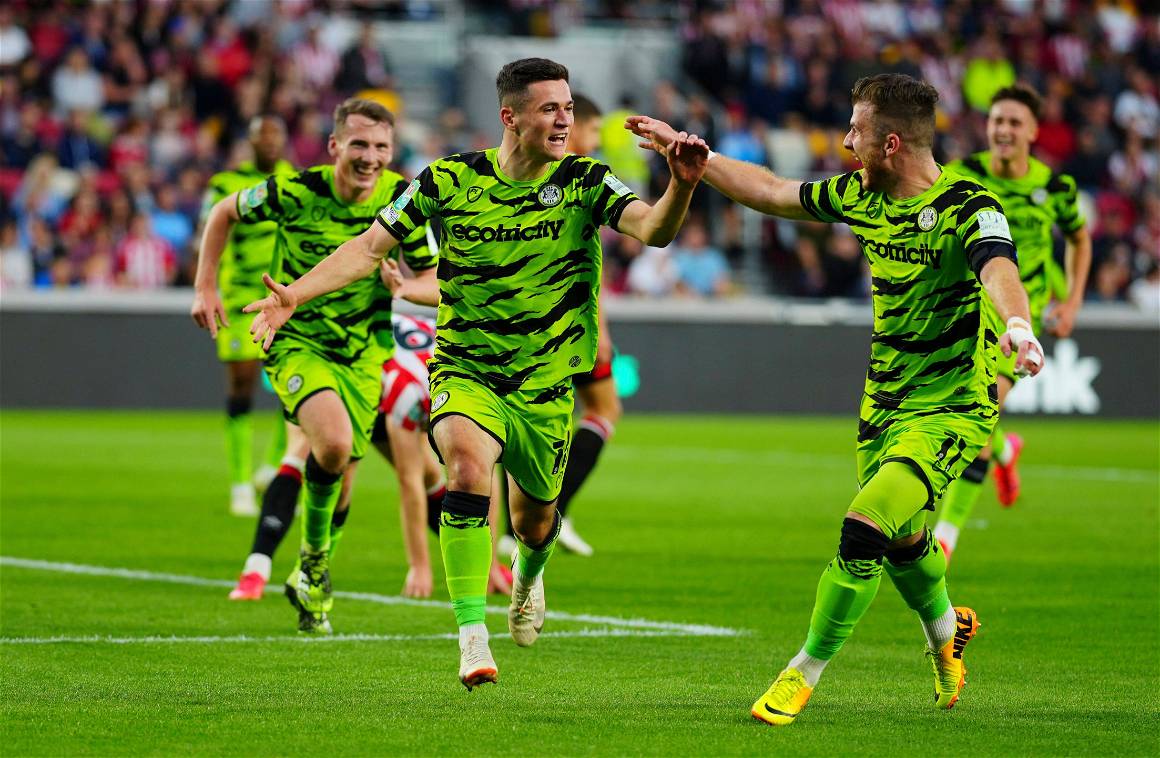
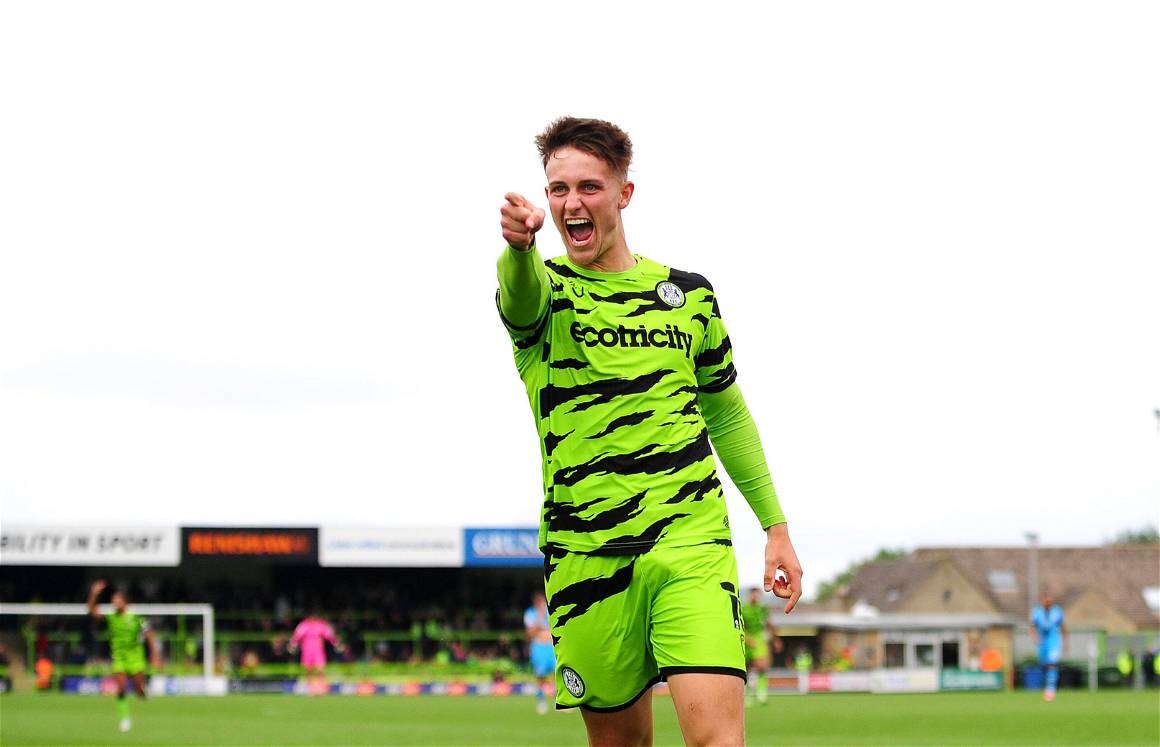
By then, Dale Vince had already been the main owner of Forest Green Rovers for seven years. Vince, born in 1961 in Great Yarmouth in the east of England, left school at the age of 15 and then spent years traveling around Europe in a wide variety of vehicles. Classic Van Life. On his travels, he also saw his first wind farm – not the first contact with wind power per se (Vince had already built a small wind turbine on his van to generate energy), but in this dimension a momentous encounter that was to change his life fundamentally. “I was a hippy dropout, but I had an epiphany when I saw my first wind farm in 1991,” he told the British Independent in a 2011 interview. “I thought, either I can carry on by myself with the windmill on my van, or I can get into the big stuff.”

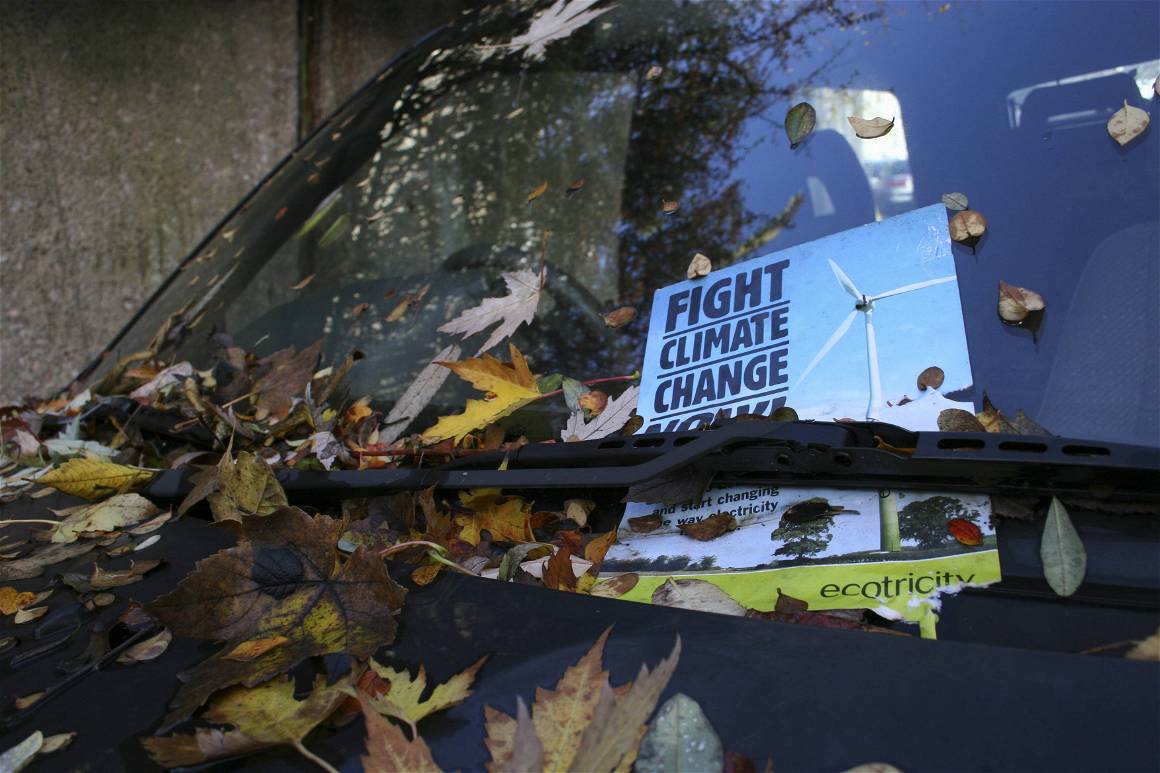
It became Big Stuff when, in 1996, he founded Ecotricity, an energy company offering green electricity, mainly from wind power, in Stroud, just a few miles from Forest Green Rovers’ stadium. The business did well, with annual sales of £193 million in 2019. Ecotricity is also trying to develop sustainable solutions for other areas in numerous side projects, such as with the electric sports car Nemesis or the production of synthetic diamonds.
So when Dale Vince invested in Forest Green Rovers in 2010 and became club chairman, it was only a matter of time before his visions would also turn the soccer world upside down. Pure coincidence, by the way, with the name, as he revealed to the Guardian in March 2021. He just wanted to help the local, tradition-steeped club and do something for the local community because they were all such “lovely people.”
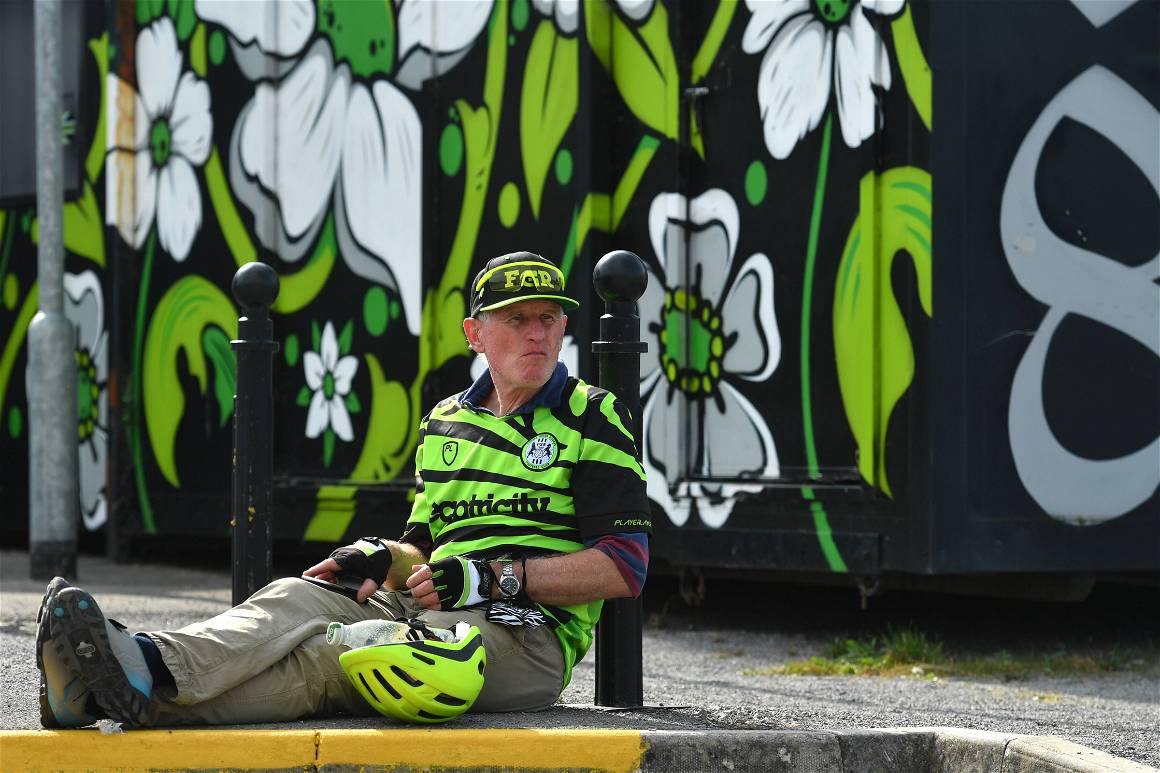
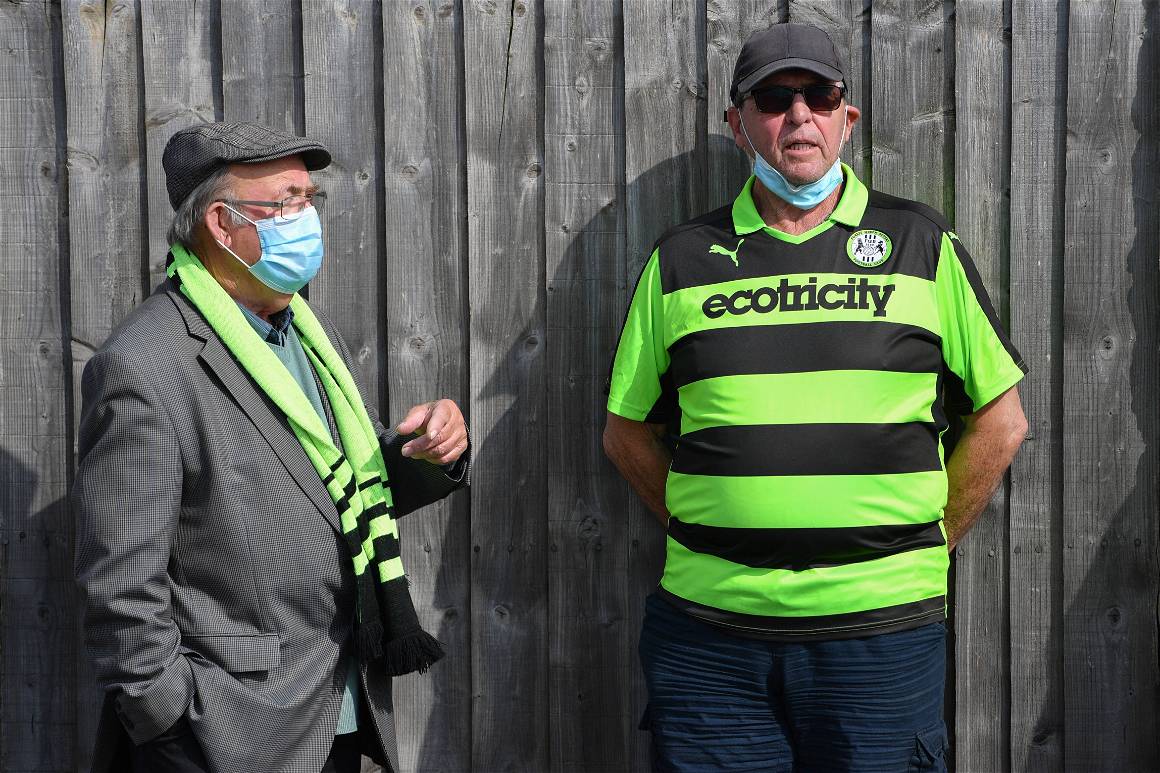
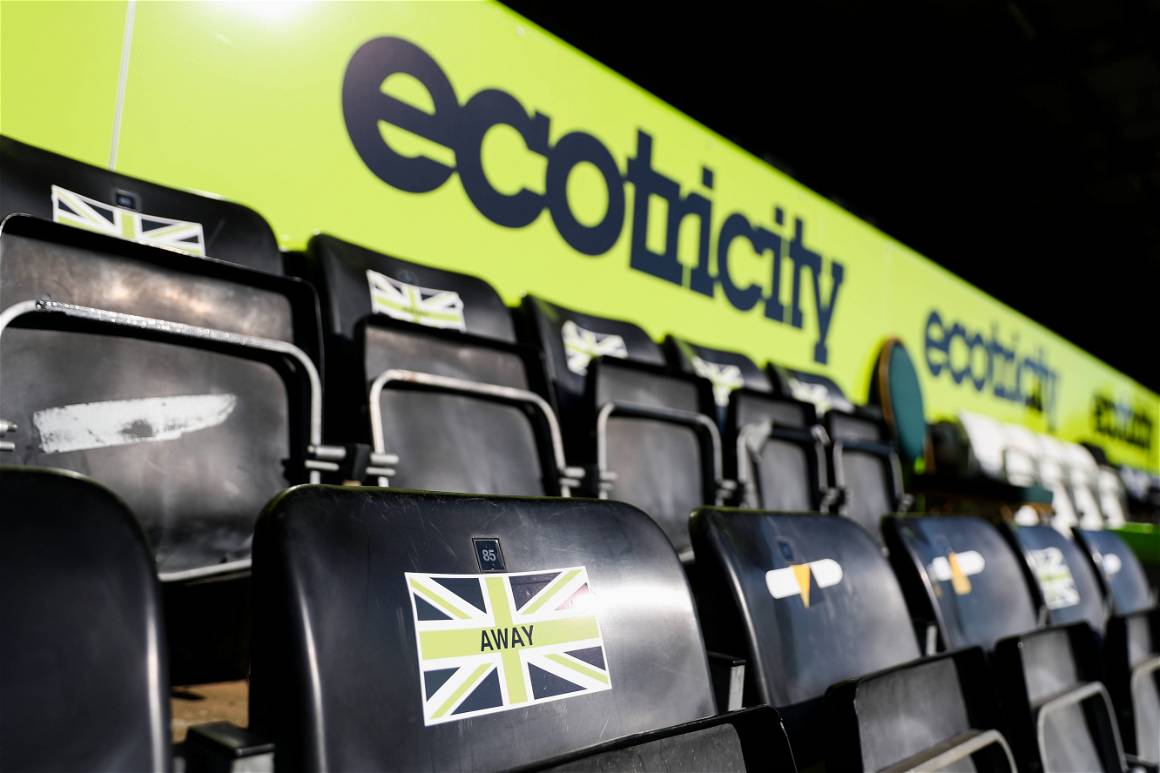
Since then, a lot has happened in terms of sustainability. His first step was to ban red meat from the menu because he couldn’t reconcile it with his ecological conscience. This was followed in 2015 with the switch to a completely vegan offering – for the fans, too. Unlike the players, who were relatively easily convinced of the positive effect on their athletic performance, the supporters didn’t find it as fun at first to have to do without their meat snacks during the halftime break, but they soon couldn’t resist the good taste of the vegan burgers and pies from the new Devil’s Kitchen.
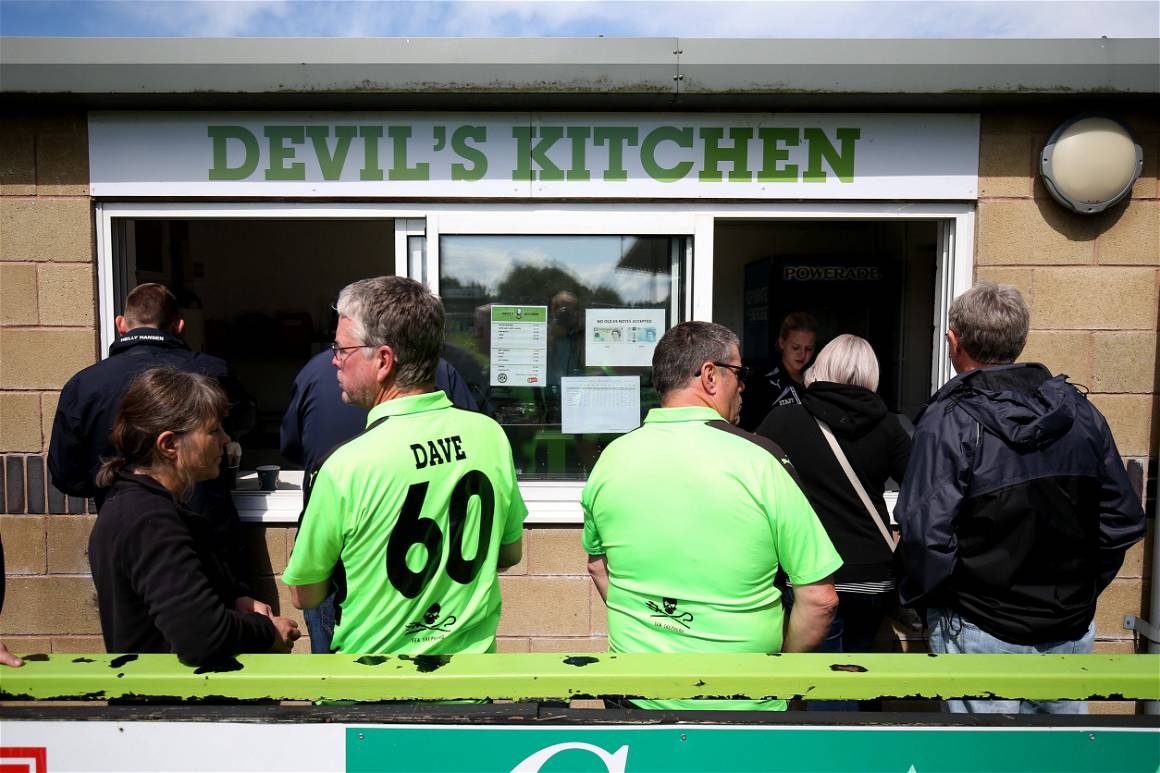
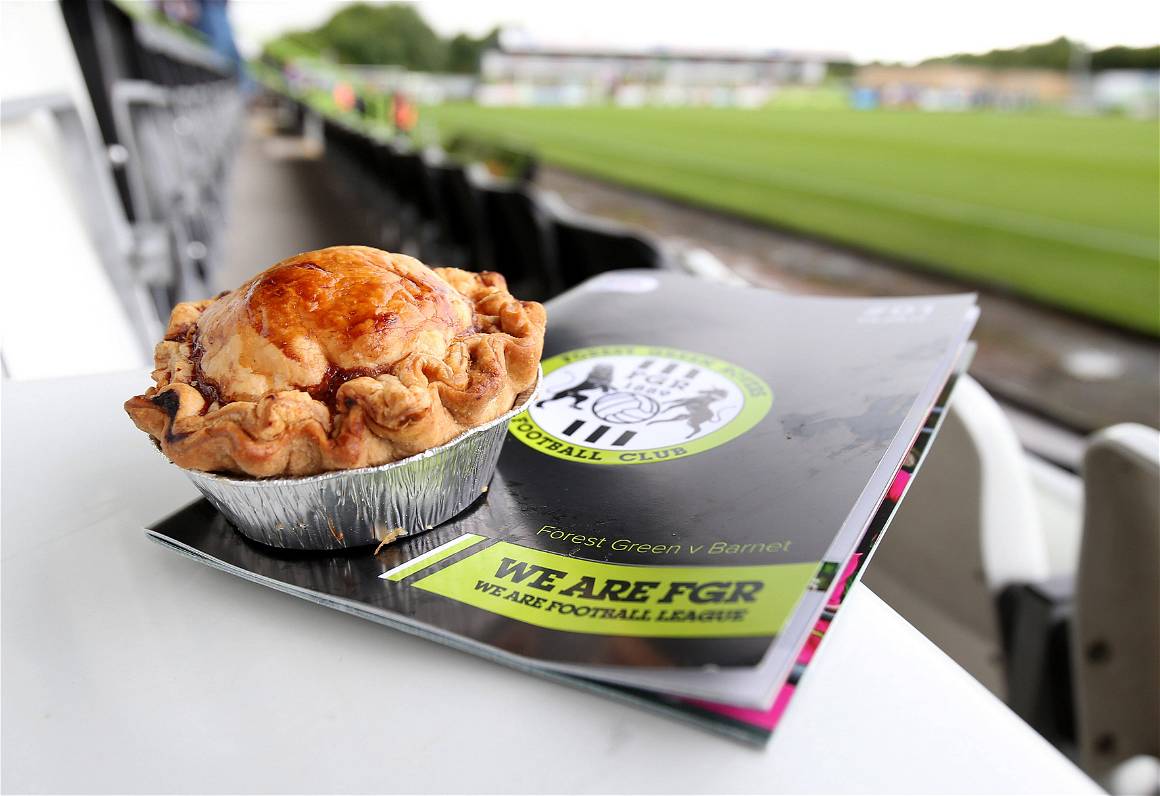
What started with food, soon filtered into all other aspects of club life. The entire club now runs on 100% green electricity and climate-neutral gas (from Ecotricity, of course), with some of the power generated by solar panels installed on site, like on the stadium roof.
Even the turf on which games are played is sustainable, free of pesticides and herbicides, and is trimmed with a GPS-controlled electric lawnmower, the solar-powered Mow-bot. The greenery of the “New Lawn” is irrigated with rainwater collected below the pitch to reduce the use of tap water.
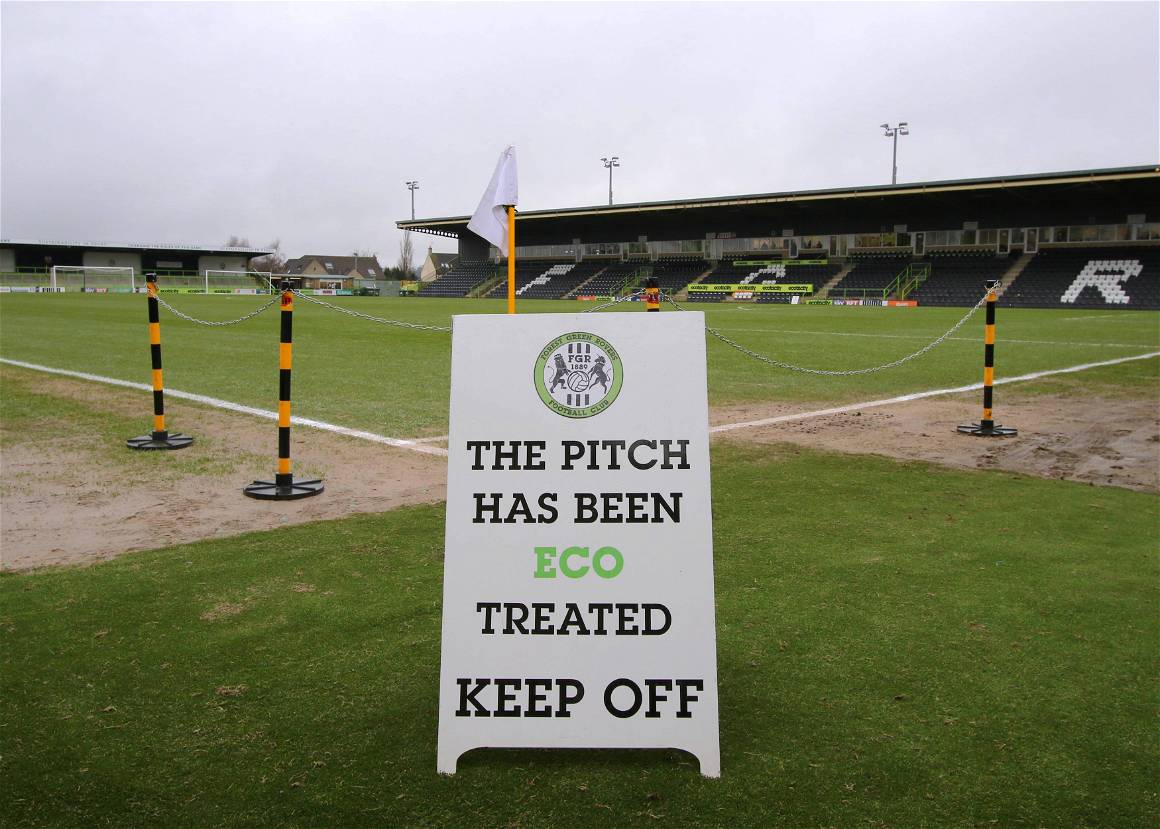
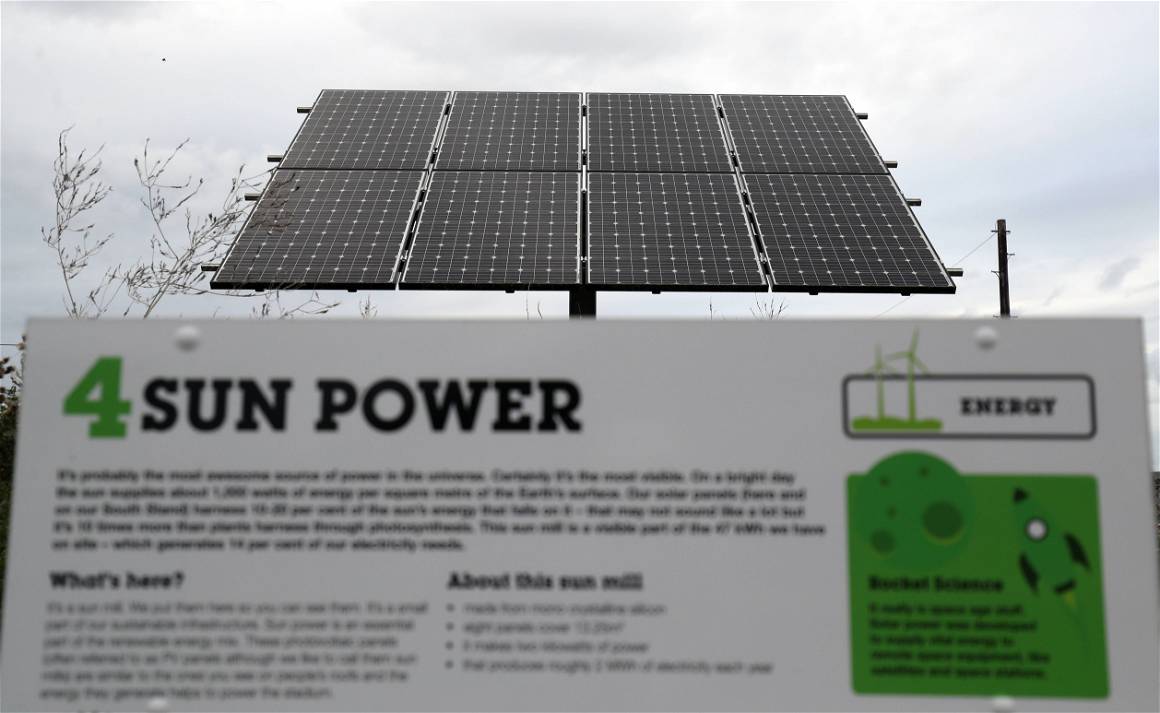
The players’ jerseys in bright green with a zebra pattern were made from recycled plastic and coffee grounds, adorned with the skull and crossbones logo of partner “Sea Shepherd,” an environmental protection organization that is particularly committed to protecting the oceans.
Fans are advised to travel to all games by public transport, carpooling is organized, and Electric Highway charge points are also available for charging electric cars.
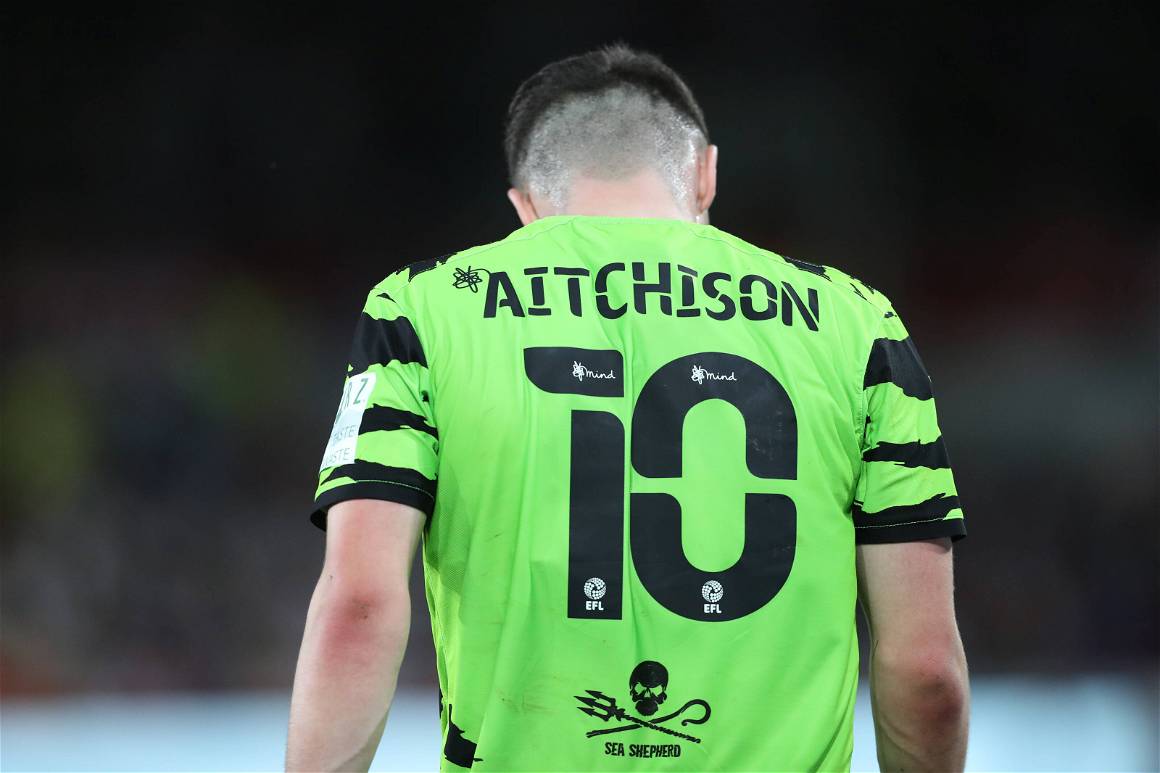
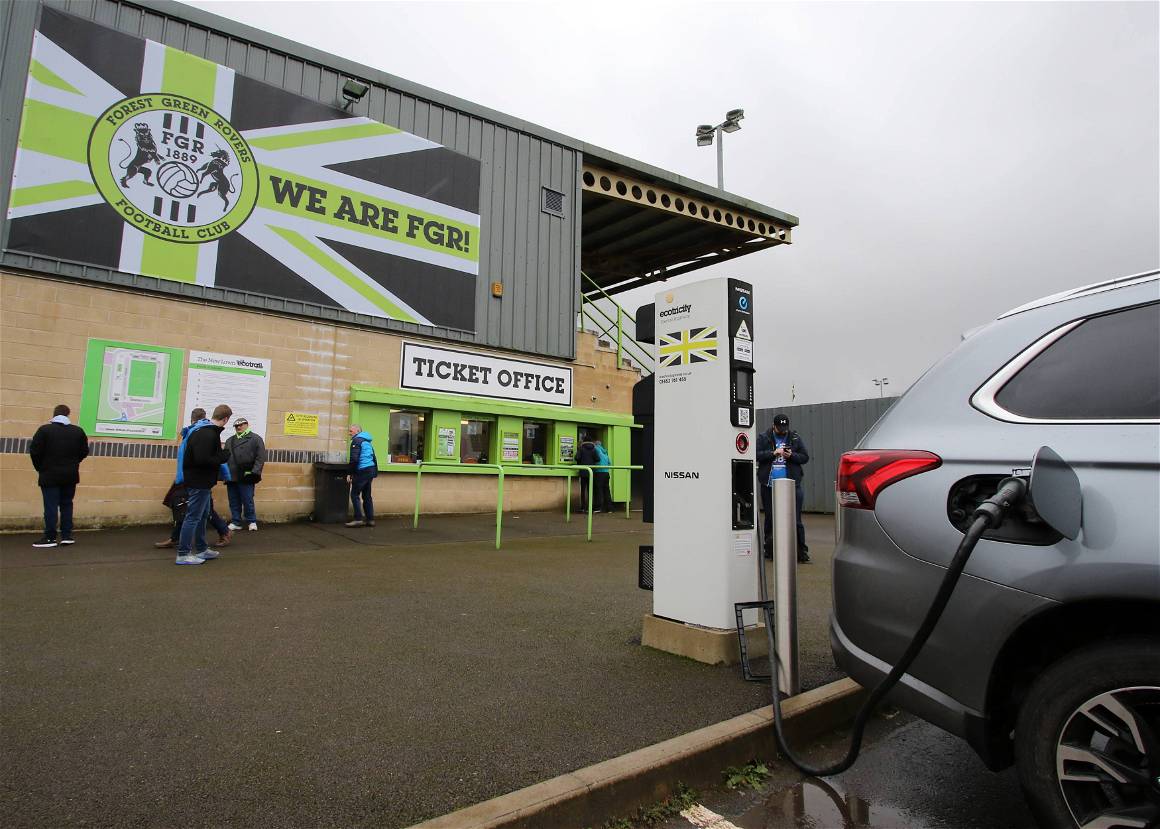
The next project will be the construction of a new stadium a few kilometers from the current venue. In February 2021, the English Football League approved the plans of the renowned architectural firm Zaha Hadid Architects. The future Eco Park is to be built almost entirely of wood. In addition, the design envisages a nature reserve around the stadium, for which hundreds of trees and hedges will be newly planted – with the aim of becoming the stadium with the lowest carbon footprint in the world.
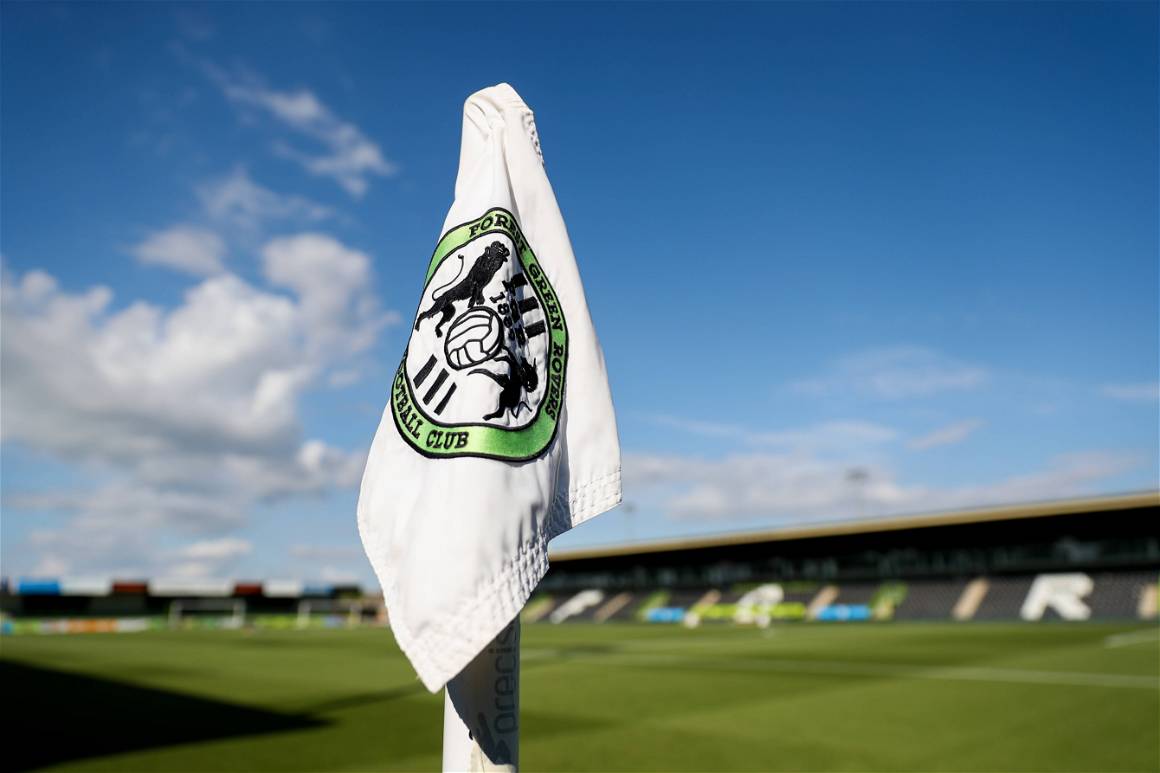
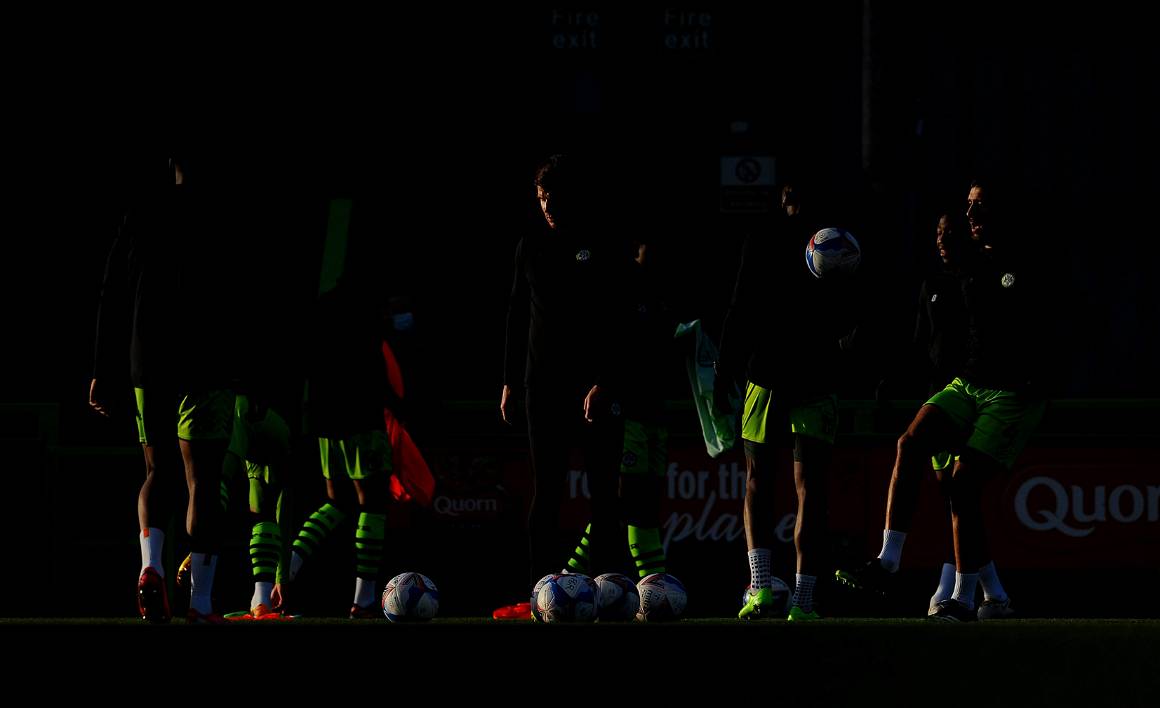
Written by our latest columnist, NG – writing for The Game on all things eco-friendly and climate change.


